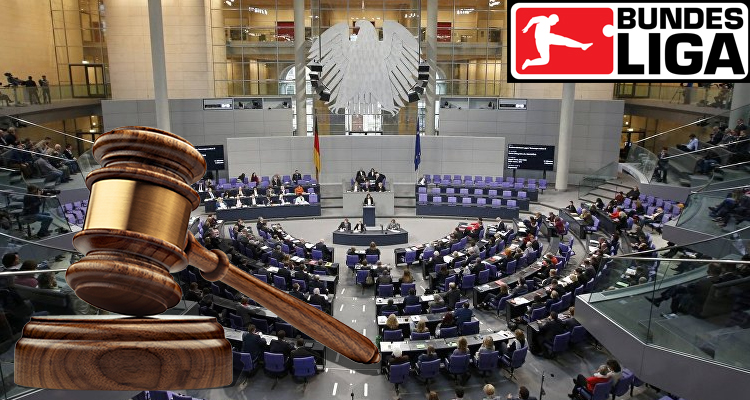A law against match fixing and betting fraud was passed late Thursday by Germany’s lower house of Parliament, Bundestag, according to German news agency Deutsche Welle.
The new law makes it illegal to conspire to fix sporting events and such activity by a coach, referee, or player found to be guilty of such faces up to three years in prison. Cases deemed especially serious by courts, are subject to a five-year prison sentence.
In a statement to reporters, German Justice Minister Heiko Maas (pictured)reportedly said, “Because other measures have not worked, we have to confront such methods with the instruments available through criminal law,” and, “In this way we will ensure that sports stand only for that which makes them so special; integrity and fair competition.”
Praising the move, the German Football Association (DFB) and the company that operates the Bundesliga, the German Football League (DFL), released a joint statement. “This law is an important building block in efforts to protect the integrity of sports,” said DFL President Reinhard Rauball. He added, “Football too will continue to do everything it can to combat betting fraud and match fixing.”
Reinhard Grindel, the president of the DFB, said that the new law that enables authorities to search premises and surveil suspected match fixers was a “very important step in efforts to protect the integrity of sports,” according to the report.
Also commenting on the new law, Khalid Ali, Secretary General of European Sports Security Association, ESSA, said, “Any move to punish match-fixers is a welcome development for betting operators who are the intended victims of betting related fraud in sport. It is, however, vital that the German authorities also establish a modern licensing and regulatory system for betting, which brings all of the major operators within its network and facilitates partnership working and the exchange of information that is crucial to identifying and punishing such corruption.”
The new law follows the anti-doping law, which was passed by the Bundestag and the second chamber, the Bundesrat, in November 2015 and came into force the following month after being signed into law by President Joachim Gauck. Like the new match fixing law, the anti-doping law subjects athletes who test positive for performance-enhancing substances to prison sentences.
Dagmar Freitag, the chairperson of the Bundestag’s standing committee on sports, reportedly said that the anti-doping law received a lot of attention internationally and that she is of the impression that the new match fixing and sporting fraud law “has the potential to be on the cutting edge.” However, when asked whether or not she believed such laws were an effective means in the fight against match fixing or doping, Freitag reportedly replied “yes and no” because the laws are only applicable in Germany. She said, “Doping and betting fraud and match fixing also have an international dimension, which we cannot combat with our national laws,” according to the report.


